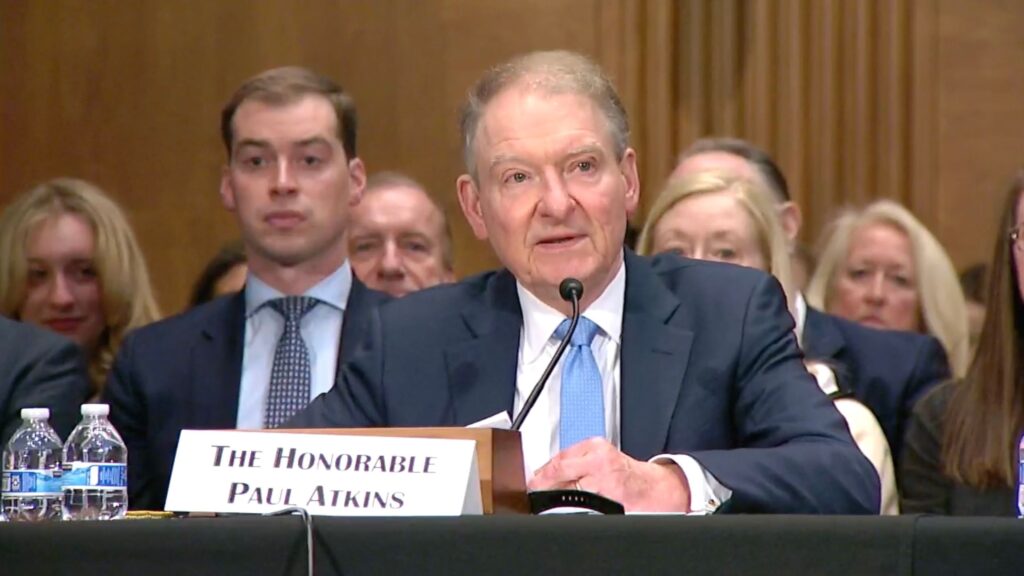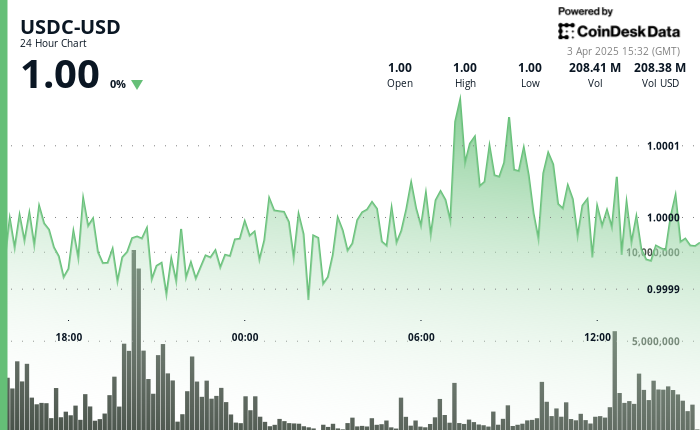The U.S. Senate Banking Committee has taken a significant step forward by voting to advance the nominations of President Donald Trump’s candidates to lead two critical financial regulatory bodies: the Securities and Exchange Commission (SEC) and the Office of the Comptroller of the Currency (OCC). These positions are pivotal in shaping future regulations for the burgeoning cryptocurrency sector.
Advancement of Key Nominations
The committee has moved to send the nominations of Paul Atkins, who is set to replace former SEC Chair Gary Gensler, and Jonathan Gould, who is nominated to head the OCC, to the full Senate for further consideration. If confirmed by the Senate, both Atkins and Gould will assume their roles and begin shaping the regulatory landscape that governs digital assets and banking practices in the U.S.
Party-Line Votes Signal Divided Opinions
Both nominees received a narrow advancement from the committee, with votes split along party lines at 13-11. This reflects the ongoing partisan divide regarding regulatory approaches to financial markets and emerging technologies.
Support from Republican Leadership
Committee Chairman Tim Scott, a Republican from South Carolina, expressed strong support for both nominees prior to the vote. He highlighted Atkins’ experience as a former SEC commissioner, stating that he would foster capital formation and provide clarity for digital assets. Regarding Gould, Scott emphasized his prior role as chief counsel at the OCC, asserting that Gould would work to eliminate “politically-motivated debanking,” which has been a significant concern for the cryptocurrency industry.
Criticism from Democratic Senators
On the other side of the aisle, Senator Elizabeth Warren, the senior Democrat on the committee, voiced her opposition to the nominees. She cited Atkins’ track record, claiming he was “dead wrong” during his previous tenure at the SEC leading up to the 2008 financial crisis. Warren also criticized Gould’s past actions at the OCC, suggesting that he “weakened the rules and helped undermine” the stability of the banking system.
Limited Focus on Cryptocurrency Regulation
Interestingly, the recent confirmation hearings did not delve deeply into cryptocurrency-related issues, despite the fact that both nominees are expected to play crucial roles in regulating the industry moving forward. As the crypto landscape continues to evolve, the implications of their potential confirmations could significantly impact how digital assets are governed in the United States.
In summary, the Senate Banking Committee’s approval is a crucial step towards determining the future of financial regulation in the U.S., especially concerning the dynamic and rapidly changing world of cryptocurrency. The upcoming Senate vote will be a pivotal moment in establishing the direction of these key regulatory agencies.



